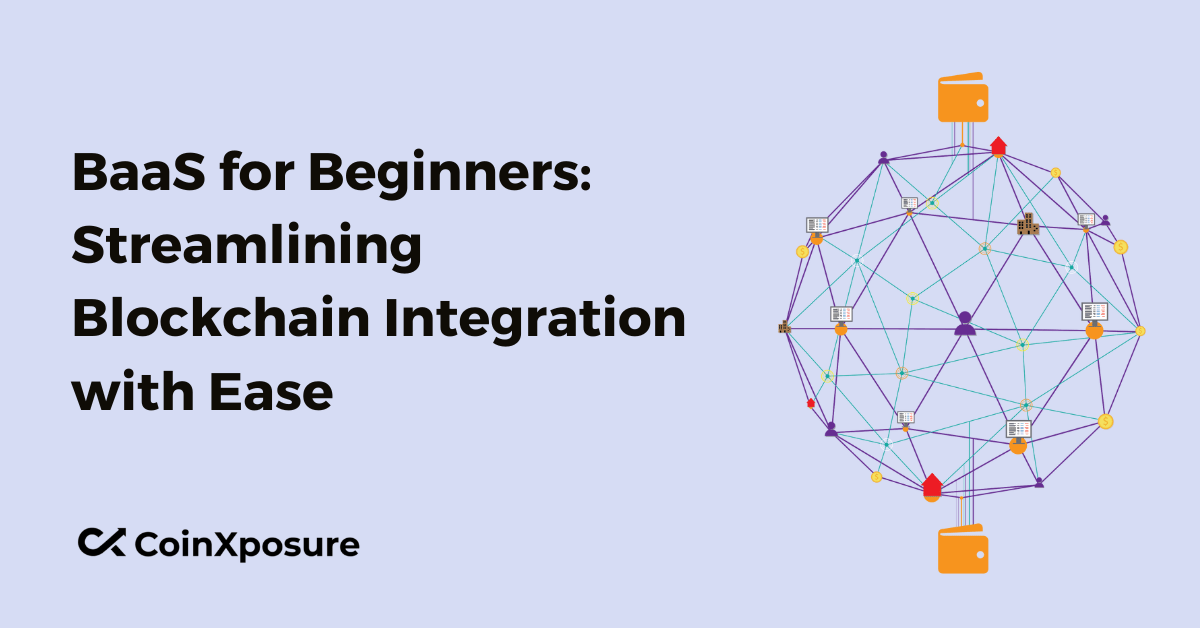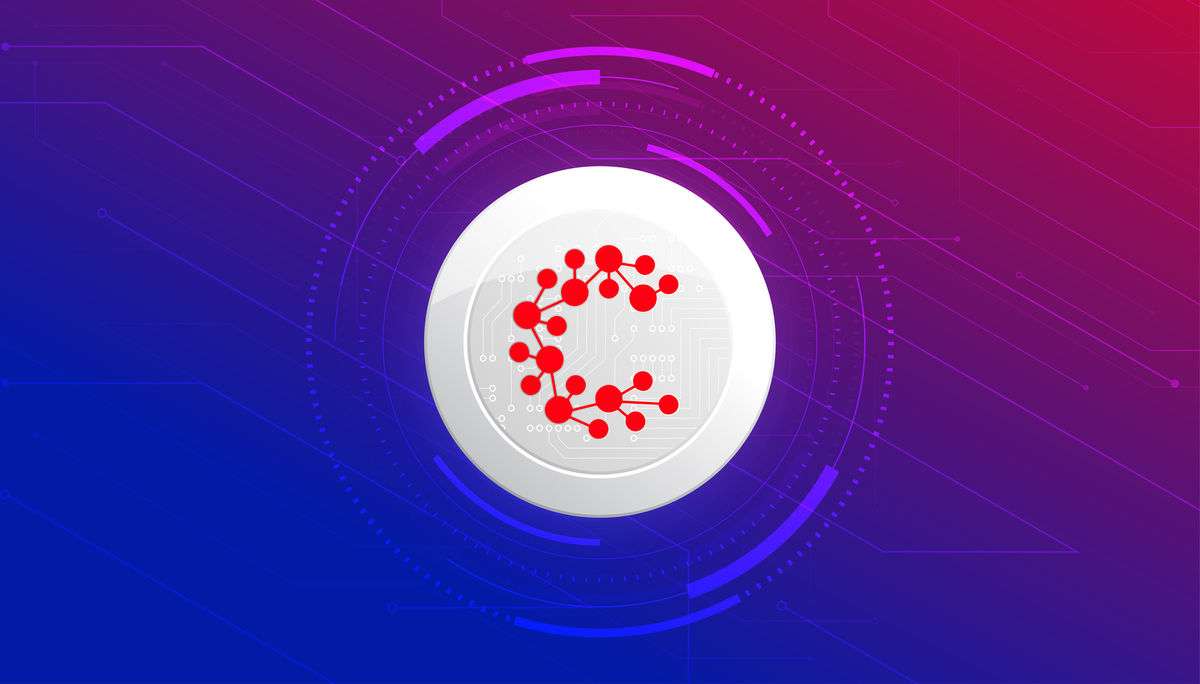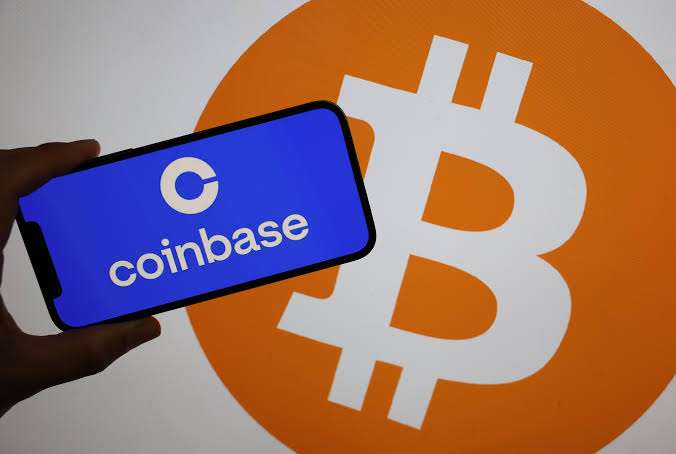Welcome to the world of Blockchain as a Service (BaaS), a revolutionary approach designed to simplify the integration of blockchain technology for beginners.
In this exploration, we’ll delve into the fundamentals of BaaS, understanding its significance in streamlining the complex process of incorporating blockchain into various applications.
Whether you’re new to blockchain or seeking an efficient way to leverage its capabilities, this guide will unravel the essentials, providing insights into key features, popular providers, integration steps, and the promising future trends of BaaS.
Join us on this journey to unlock the potential of blockchain with ease and discover how BaaS is reshaping the landscape of decentralized innovation.
Basics of Blockchain
Blockchain, at its core, is a decentralized and distributed ledger technology that enables secure and transparent record-keeping. Here are the fundamental aspects of blockchain:
Definition
A blockchain is a chain of blocks, where each block contains a list of transactions. These blocks are linked together in a chronological order, forming a continuous chain.
Decentralization
Unlike traditional centralized systems, blockchain operates on a decentralized network of computers (nodes). Each node on the network has a copy of the entire blockchain, ensuring no single point of failure and enhancing security.
Blocks and Transactions
Transactions are grouped into blocks, and each block contains a unique identifier called a hash. The hash of a block also includes the hash of the previous block, creating a chain that links all the blocks together.
Consensus Mechanism
Blockchain relies on consensus mechanisms to agree on the validity of transactions and maintain the integrity of the ledger. Common mechanisms include Proof of Work (PoW), Proof of Stake (PoS), and Delegated Proof of Stake (DPoS).
Understanding these basic principles is crucial for anyone exploring the potential applications and implications of blockchain technology in various industries.
Understanding BaaS
Blockchain as a Service (BaaS) is a cloud-based service that provides a simplified and streamlined way for individuals and businesses to integrate and deploy blockchain technology without the need for extensive in-house expertise. Here are key aspects to understand about BaaS:
- Cloud-Based Infrastructure
- Pre-Built Templates and Smart Contracts
- Security Measures
- Scalability Options
Cloud-Based Infrastructure
BaaS leverages cloud computing infrastructure to offer users a convenient platform for developing, deploying, and managing blockchain applications. This eliminates the need for users to invest in and maintain their own blockchain nodes and servers.
Pre-Built Templates and Smart Contracts
BaaS platforms often come with pre-built templates and smart contracts that users can readily deploy. This accelerates the development process, making it more accessible to those without deep technical knowledge of blockchain programming.
Security Measures
BaaS providers implement robust security measures, including encryption and authentication protocols, to ensure the integrity and confidentiality of blockchain data. Users can rely on the security infrastructure provided by the BaaS platform.
Scalability Options
BaaS platforms offer scalability options to accommodate growing demand. Users can scale their blockchain applications easily by adjusting resources such as computing power and storage, without the need for extensive manual configurations.
Understanding BaaS simplifies the process of adopting blockchain technology, making it accessible to a broader audience. Whether you are a developer, entrepreneur, or enterprise looking to explore the potential of blockchain, BaaS provides a user-friendly entry point into the world of decentralized applications and smart contracts.
Key Features of BaaS
Here are some key features of Blockchain as a Service (BaaS):
- Cloud-Based Infrastructure
- Pre-Built Templates and Smart Contracts
- Security Measures
- Scalability Options
- Interoperability
Cloud-Based Infrastructure
BaaS operates on cloud platforms, allowing users to access and manage blockchain networks without the need to maintain their own physical infrastructure.
Pre-Built Templates and Smart Contracts
BaaS platforms offer ready-made templates and smart contracts, reducing development time and enabling users to deploy blockchain applications more efficiently.
Security Measures
BaaS providers implement robust security protocols, including encryption and authentication, ensuring the integrity and confidentiality of blockchain data.
Scalability Options
BaaS platforms provide scalability, allowing users to adjust resources such as computing power and storage to accommodate changes in demand for their blockchain applications.
Interoperability
BaaS facilitates seamless integration with existing systems and applications, promoting interoperability and enabling businesses to incorporate blockchain without major disruptions.
Understanding these key features helps users leverage BaaS to harness the benefits of blockchain technology while minimizing complexities and resource requirements.
BaaS Providers
Several BaaS (Blockchain as a Service) providers offer diverse features and cater to different needs. Here are some notable BaaS providers:
- Microsoft Azure Blockchain Service: Microsoft’s Azure platform provides a BaaS solution that supports various blockchain networks, including Ethereum, Corda, and Quorum. It offers easy integration with other Azure services.
- Amazon Managed Blockchain (AMB): Part of Amazon Web Services (AWS), AMB supports popular blockchain frameworks like Hyperledger Fabric and Ethereum. It simplifies the creation and management of scalable blockchain networks.
- IBM Blockchain Platform: IBM offers a comprehensive BaaS solution that supports both Hyperledger Fabric and Ethereum. It provides tools for creating, deploying, and governing blockchain networks.
- Oracle Blockchain Platform: Oracle’s BaaS solution is designed for enterprises, offering support for Hyperledger Fabric. It provides tools for smart contract development, monitoring, and integration with existing Oracle services.
- Google Cloud Blockchain: Google Cloud Platform (GCP) provides a BaaS solution that integrates with popular blockchain frameworks such as Ethereum. It emphasizes scalability, security, and easy deployment.
- BloxBean: BloxBean focuses on simplifying blockchain development and deployment. It supports Hyperledger Besu and provides tools for managing blockchain networks efficiently.
- Chainstack: Chainstack is a BaaS provider that supports multiple blockchain protocols, including Ethereum, Corda, and Hyperledger Fabric. It offers an easy-to-use platform for managing decentralized networks.
- R3 Corda on Microsoft Azure: This partnership between R3 and Microsoft Azure provides a BaaS solution specifically tailored for Corda, an open-source blockchain platform.
- Alibaba Cloud Blockchain as a Service: Alibaba Cloud offers BaaS services supporting Hyperledger Fabric and Ant Blockchain. It provides features like identity management and monitoring tools.
- BlockApps STRATO: BlockApps focuses on providing BaaS solutions for enterprises. Their STRATO platform supports Ethereum-based applications and emphasizes privacy and scalability.
When choosing a BaaS provider, factors such as the supported blockchain networks, ease of use, scalability, security features, and integration capabilities should be considered based on the specific needs and goals of the user or organization.
Steps to Integrate BaaS
Integrating Blockchain as a Service (BaaS) into your project involves several steps. Here’s a general guide to help you get started:
- Define Your Use Case and Requirements:
- Clearly outline the purpose and goals of integrating blockchain.
- Identify specific features and requirements relevant to your use case.
- Choose a BaaS Provider:
- Research and select a BaaS provider based on your project needs.
- Consider factors such as supported blockchain networks, scalability, security features, and ease of use.
- Set Up an Account:
- Sign up for an account with the chosen BaaS provider.
- Familiarize yourself with the provider’s dashboard and available services.
- Select a Blockchain Network and Template:
- Choose the blockchain network that aligns with your project requirements (e.g., Ethereum, Hyperledger).
- Utilize pre-built templates and configurations offered by the BaaS provider to accelerate development.
- Configure Network Parameters:
- Define network parameters such as consensus mechanism, nodes, and permissions.
- Customize settings to match the requirements of your blockchain application.
- Develop Smart Contracts:
- Write or customize smart contracts that define the logic and rules of your blockchain application.
- Utilize any integrated development tools or platforms provided by the BaaS service.
- Test Smart Contracts:
- Deploy your smart contracts on the BaaS platform’s test environment.
- Conduct thorough testing to ensure the functionality and security of your smart contracts.
- Integrate with Existing Systems:
- If applicable, integrate your blockchain application with existing systems and databases.
- Ensure seamless communication between your blockchain solution and other components.
- Security Configuration:
- Implement security measures provided by the BaaS platform, such as encryption and access controls.
- Regularly update and patch your blockchain network to address security vulnerabilities.
- Scale Resources as Needed:
- Monitor the performance of your blockchain application.
- Adjust resources (e.g., computing power, storage) based on demand and scalability requirements.
- Document and Maintain:
- Document your integration process and configurations for future reference.
- Stay informed about updates and new features provided by the BaaS platform.
- Deploy to Production:
- Once satisfied with testing, deploy your blockchain application to the production environment.
- Monitor the production environment closely, addressing any issues promptly.
By following these steps, you can effectively integrate Blockchain as a Service into your project, streamlining the development and deployment of blockchain applications.
Challenges and Considerations of Blockchain as a Service (BaaS)
Integrating Blockchain as a Service (BaaS) comes with various challenges and considerations that organizations and developers should be mindful of:
- Security Concerns
- Regulatory Compliance
- Interoperability Issues
- Scalability Challenges
Security Concerns
Despite the enhanced security features of blockchain, vulnerabilities and security risks still exist, such as smart contract vulnerabilities and potential attacks on the underlying infrastructure.
Regulatory Compliance
Navigating regulatory frameworks can be challenging, as blockchain often involves legal and compliance considerations that vary across jurisdictions.
Interoperability Issues
Achieving interoperability between different blockchain networks and legacy systems can be complex, limiting the seamless integration of blockchain technology.
Scalability Challenges
As the volume of transactions and users increases, scalability becomes a concern. Ensuring that the chosen BaaS solution can scale effectively is crucial for long-term success.
Integration with Existing Systems
Integrating blockchain with existing systems can be challenging, particularly if legacy systems were not designed with blockchain in mind. Compatibility issues may arise.
Addressing these challenges requires a comprehensive understanding of both the technical and business aspects of blockchain technology. Organizations should carefully assess their specific use case and choose a BaaS solution that aligns with their goals while actively staying informed about industry developments and best practices.
Future Trends in BaaS
Several trends are shaping the future of Blockchain as a Service (BaaS) as the technology continues to evolve. Here are some key trends to watch:
- Integration with AI and IoT
- Cross-Platform Interoperability
- Focus on Sustainability
- Enhanced Privacy Features
- Tokenization of Assets
- Cross-Chain Integration
Integration with AI and IoT
BaaS platforms are likely to integrate more with Artificial Intelligence (AI) and Internet of Things (IoT) technologies, enabling a more comprehensive and interconnected ecosystem.
Cross-Platform Interoperability
Enhanced efforts towards standardization and interoperability will make it easier for BaaS solutions to seamlessly integrate with various blockchain networks and other technologies.
Focus on Sustainability
Given the environmental concerns associated with some consensus mechanisms (e.g., Proof of Work), there is an increasing emphasis on adopting more energy-efficient and eco-friendly approaches in BaaS.
Enhanced Privacy Features
BaaS providers are expected to offer improved privacy features, such as advanced encryption techniques and zero-knowledge proofs, to address concerns related to data privacy and confidentiality.
Tokenization of Assets
BaaS platforms are likely to play a significant role in the tokenization of various assets, from real estate to intellectual property, providing new opportunities for investment and decentralized finance (DeFi).
Cross-Chain Integration
BaaS solutions will likely focus on facilitating interoperability between different blockchains, allowing for the seamless transfer of assets and information across multiple blockchain networks.
Keeping an eye on these trends will help businesses and developers stay ahead in leveraging the full potential of BaaS and blockchain technology in the evolving landscape.
Conclusion
Blockchain as a Service (BaaS) stands as a transformative force, offering a simplified gateway for individuals and enterprises to harness the potential of blockchain technology.
As we navigate the complexities of decentralized systems, BaaS emerges as a key enabler, streamlining the integration process with user-friendly interfaces, cloud-based infrastructure, and pre-built templates.
The future of BaaS promises exciting developments, with trends leaning towards enhanced interoperability, sustainability, and integration with emerging technologies like AI and IoT.
While challenges such as security concerns and regulatory compliance persist, the continuous evolution of BaaS indicates a promising trajectory for the broader adoption of blockchain across diverse industries.
As we move forward, the collaborative efforts of the blockchain community, coupled with the innovations of BaaS providers, will shape a landscape where decentralized applications and smart contracts become integral components of our digital future.












